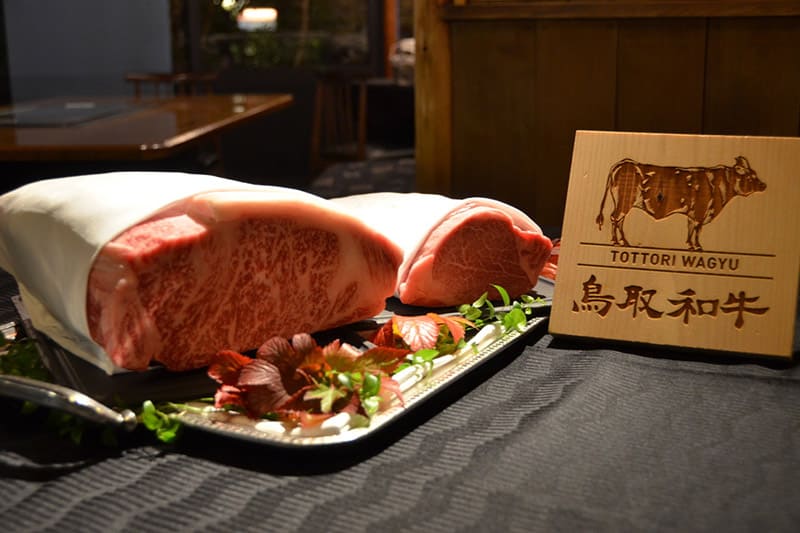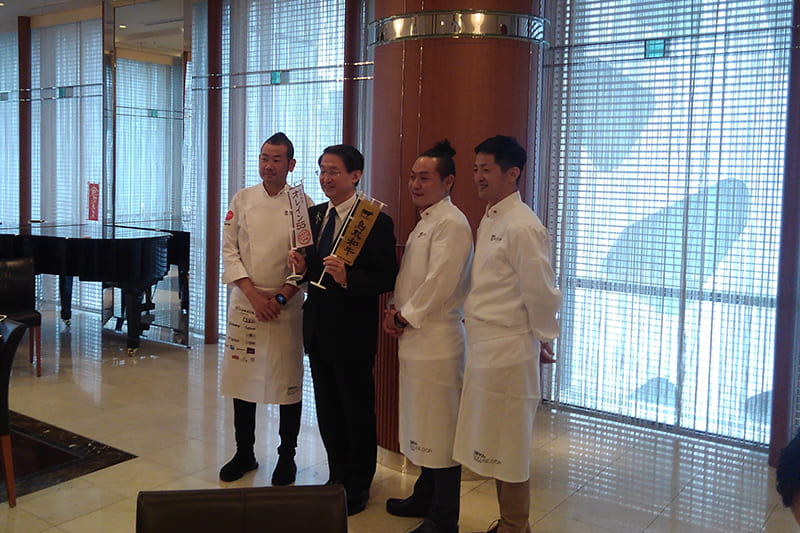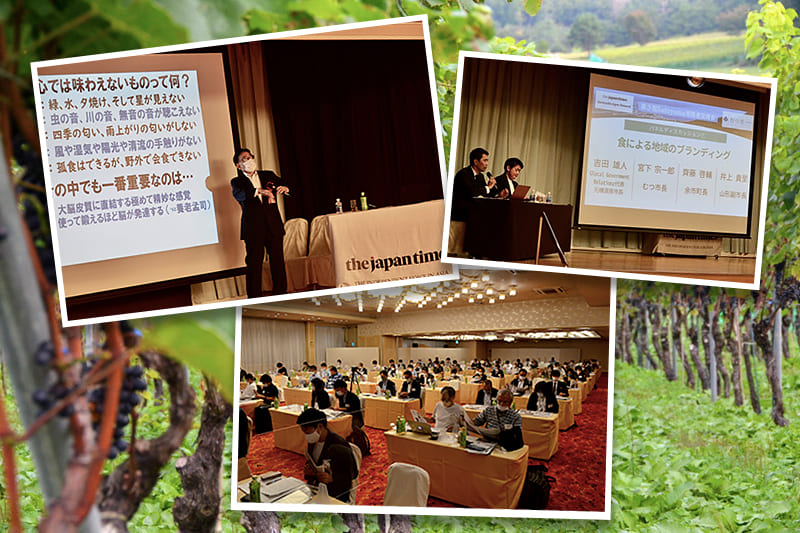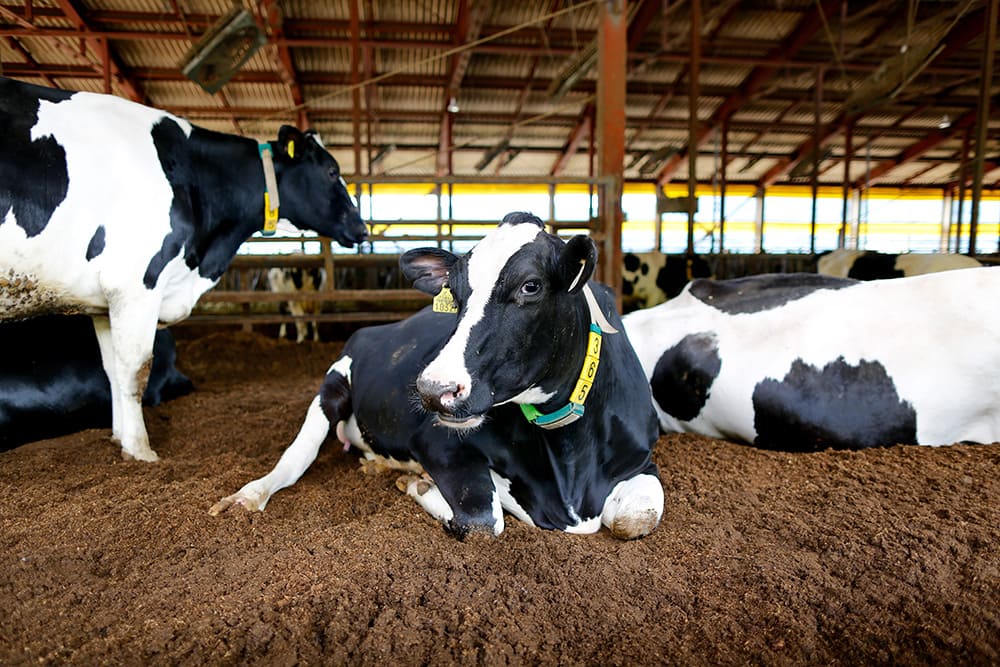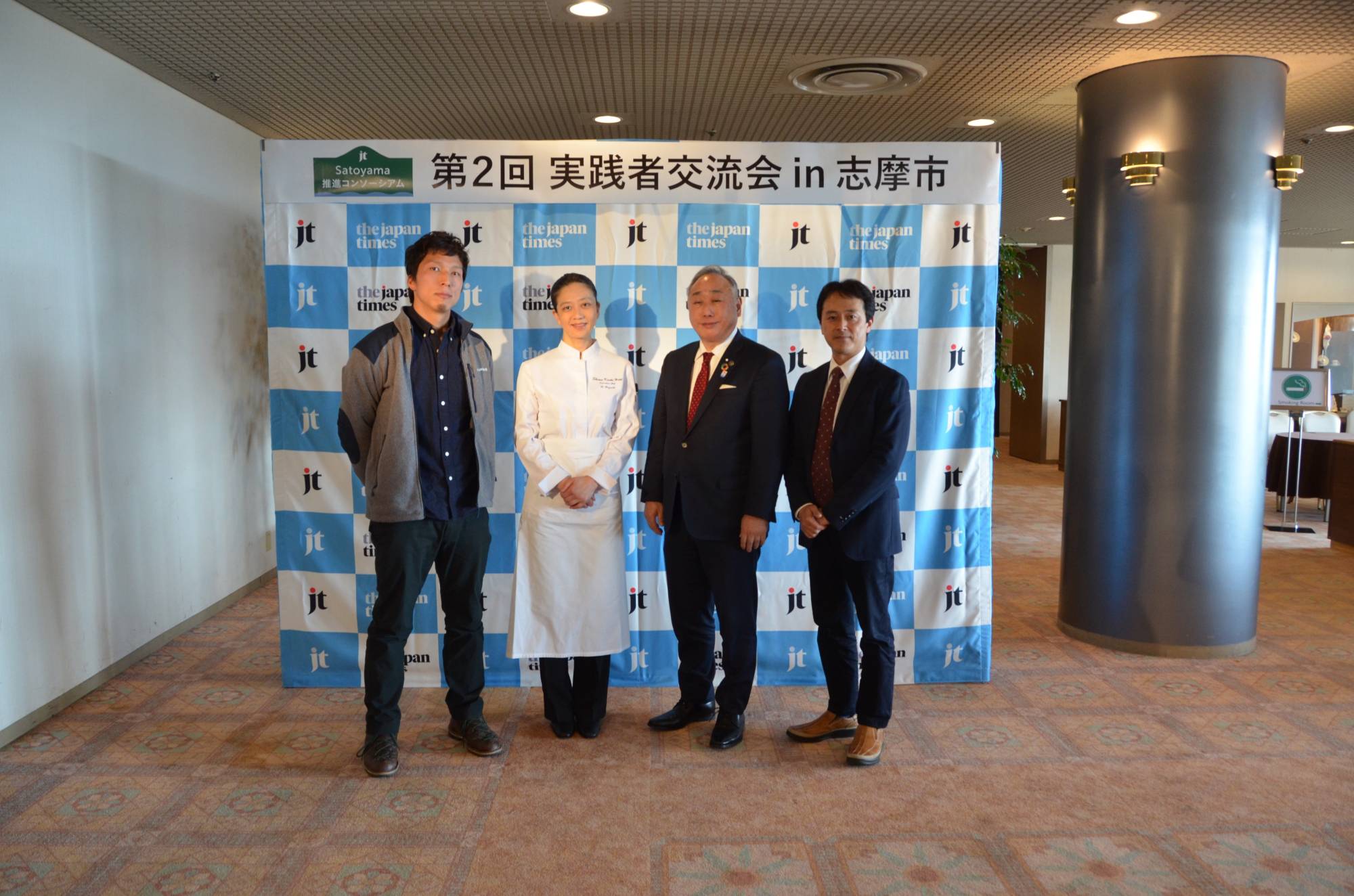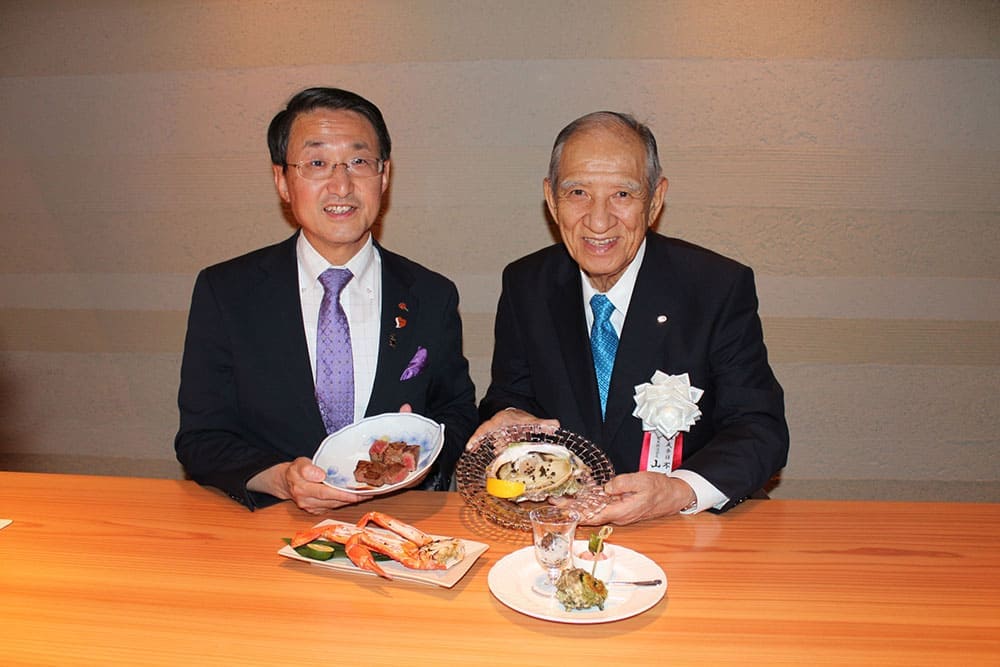February 07, 2023
Sakaue raises consciousness along with grass-fed cattle
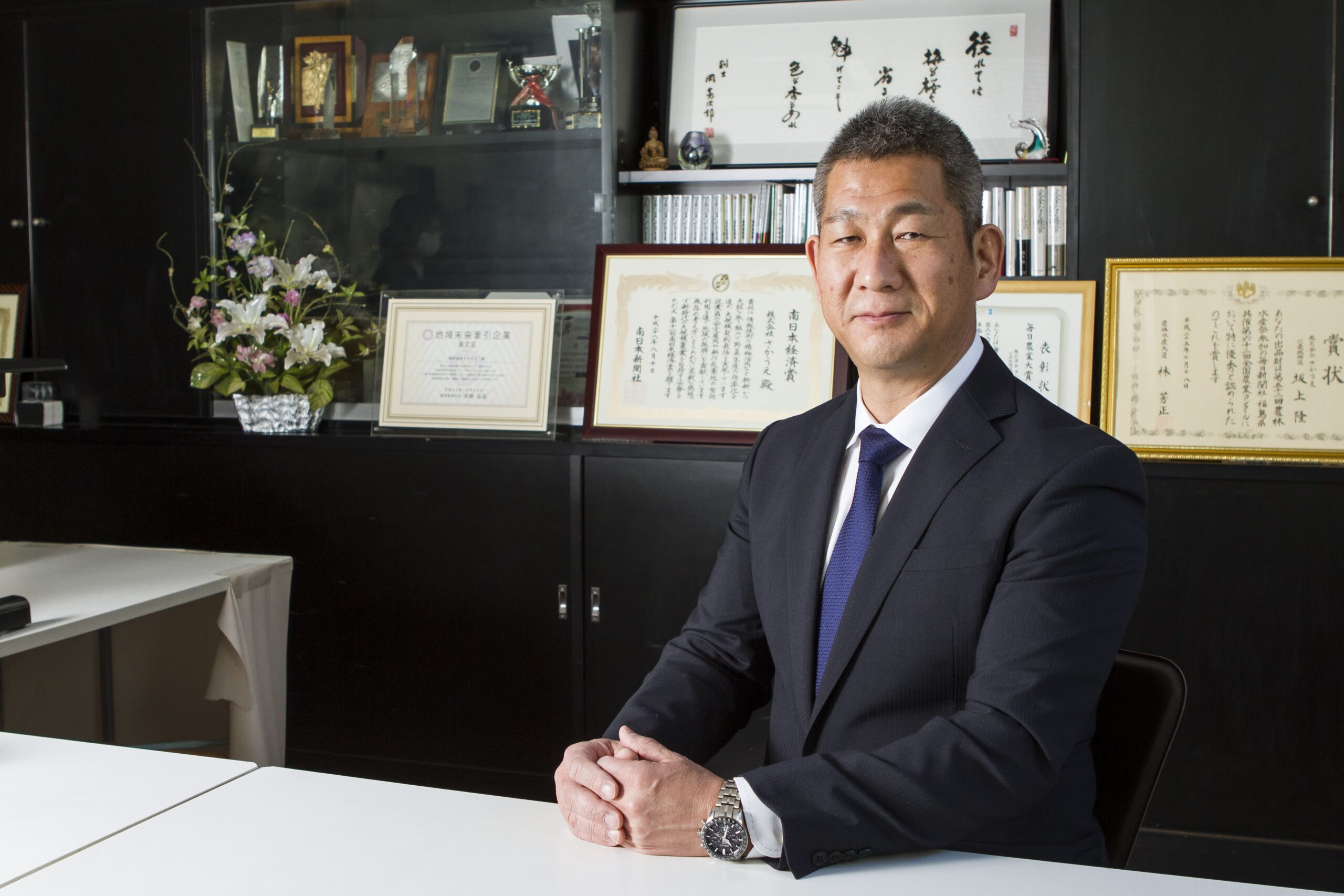
Sakaue Co. Ltd., an agricultural corporation established in 1995 in the city of Shibushi in Kagoshima Prefecture, started raising grass-fed Japanese black cattle in 2019. This project won the Excellence Award of the Sustainable Japan Award 2022 presented by The Japan Times.
The award recognized the circular nature of the project, which involves feeding cattle grass and silage produced by its farmers, composting the manure from the livestock and then using it to grow agricultural products. It also provides an alternative to grain-fed beef, which is facing soaring prices of imported grain and problems of food shortages in some countries.
“Domestically produced grass-fed beef is not common, and consumers in Japan tend to imagine tough meat that stinks a bit when they hear ‘grass-fed.’ The business model of grass-feeding Japanese black cattle and selling beef was quite new,” CEO Takashi Sakaue said in a recent online interview with The Japan Times. On top of that, the company did not sell its beef through the existing distribution system. “At the beginning of the COVID-19 pandemic, the prices of meat dropped. It did not make sense to sell our beef the conventional way, so we decided to sell it directly to consumers online. Due to the pandemic situation, we had time to try this option,” he said.
Sakaue explained that agriculture and livestock farming differ from other industries in two basic ways. The first is that farmers deal with living things. The second is that farmers live where they work. “A clothing manufacturer does not live in a factory, but most farmers have their house right next to their farms. You can relocate factories, but you cannot move your farm elsewhere,” he said, pointing out that this is why farming businesses tend to become closely connected with their communities.
“My parents engaged in agriculture, too. When they could not afford to buy farmland, someone in the community leased part of their land to them,” he recalled. But the times have changed and the number of farmers is decreasing. “The issue of abandoned farmland is rising. I wanted to give back to the community in a way that solves its current problems and uses its existing resources,” he said. Uncultivated land often lies between forests and villages in areas referred to as satoyama, which are blessed with natural resources and can be easily accessed by people. This is one of the reasons why they named the beef “satoyama beef.”
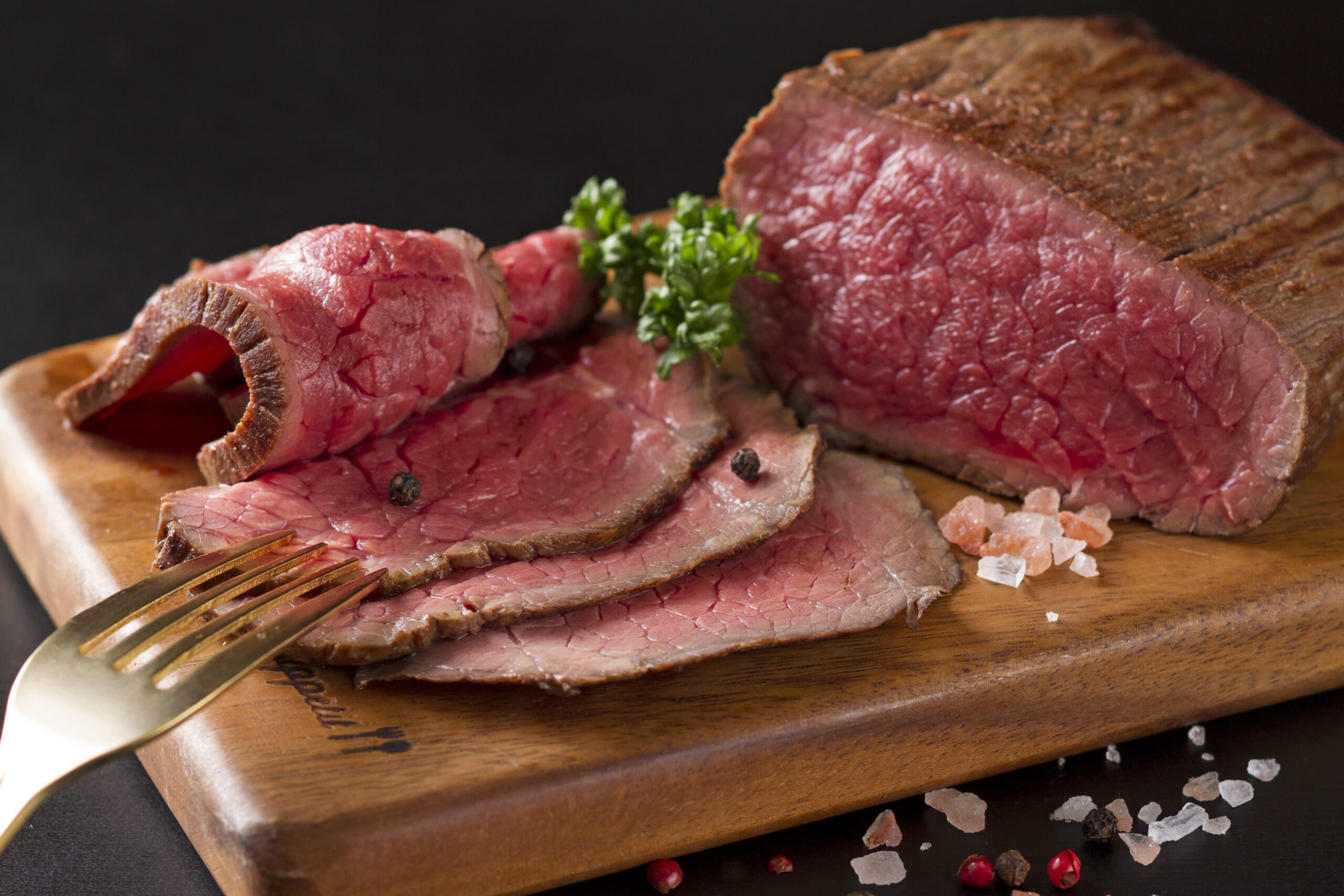
Another reason is because “satoyama” is a concept unique to Japan. “There is no word in English that describes what satoyama is,” Sakaue said. Masatoshi Nakagawa, the head of the company’s sales department, nodded and said: “It is not only unique, but also attractive to foreigners because it is the kind of ‘Japan’ that they want to see. I used to work for a travel agency that specialized in offering tour packages to inbound tourists. Many of our customers wanted to see rural scenery, exactly the satoyama kind of landscape, more than tourist spots.” He explained that the name “satoyama beef” may attract interest from such people.
As the times change, so do what and how to sell, and who to sell it to. Today’s challenges may not be so in the future. The shortage of farmland is a problem of the past. People are looking for sustainable and healthy options rather than quantity and productivity. “The value of our company lies in our effort to provide something new to society by adopting to the changing environment and situation with common sense,” Sakaue said.
There is a principle that Sakaue upholds in proving the company’s value. “We need to look for an optimum solution based on our philosophy, the environment and the economy. We have our own beliefs about what we want to do, and we need to take nature and the environment into consideration, too. But we cannot motivate other people without economic viability. We should not let one of these three concepts overwhelm the other two just because we think it is right,” Sakaue said, explaining that when the balance of the three concepts is optimized, a business becomes truly sustainable.
Satoyama beef is a perfect example of such a sustainable business. It is a result of the fusion of the company’s will to contribute to the community, its environment containing abandoned farmland, and the marketing method of reaching out to consumers interested in natural and sustainable foodstuffs. “But the optimum balance itself keeps changing. We need to watch carefully to grasp changes and always seek an optimum balance,” Sakaue said.
The company’s principles permeate to each of its staff members, half of whom are in their 30s or younger. Very likely, many of the young employees wished to work for the company because of its foresight in making farming about much more than just growing food. This year, the company will collaborate with the city of Shibushi to further nurture human resources in the agricultural sector. “We aim to engage more people who empathize with our ideas to make agriculture a sustainable industry that can meet the changing needs of society,” Sakaue said.

